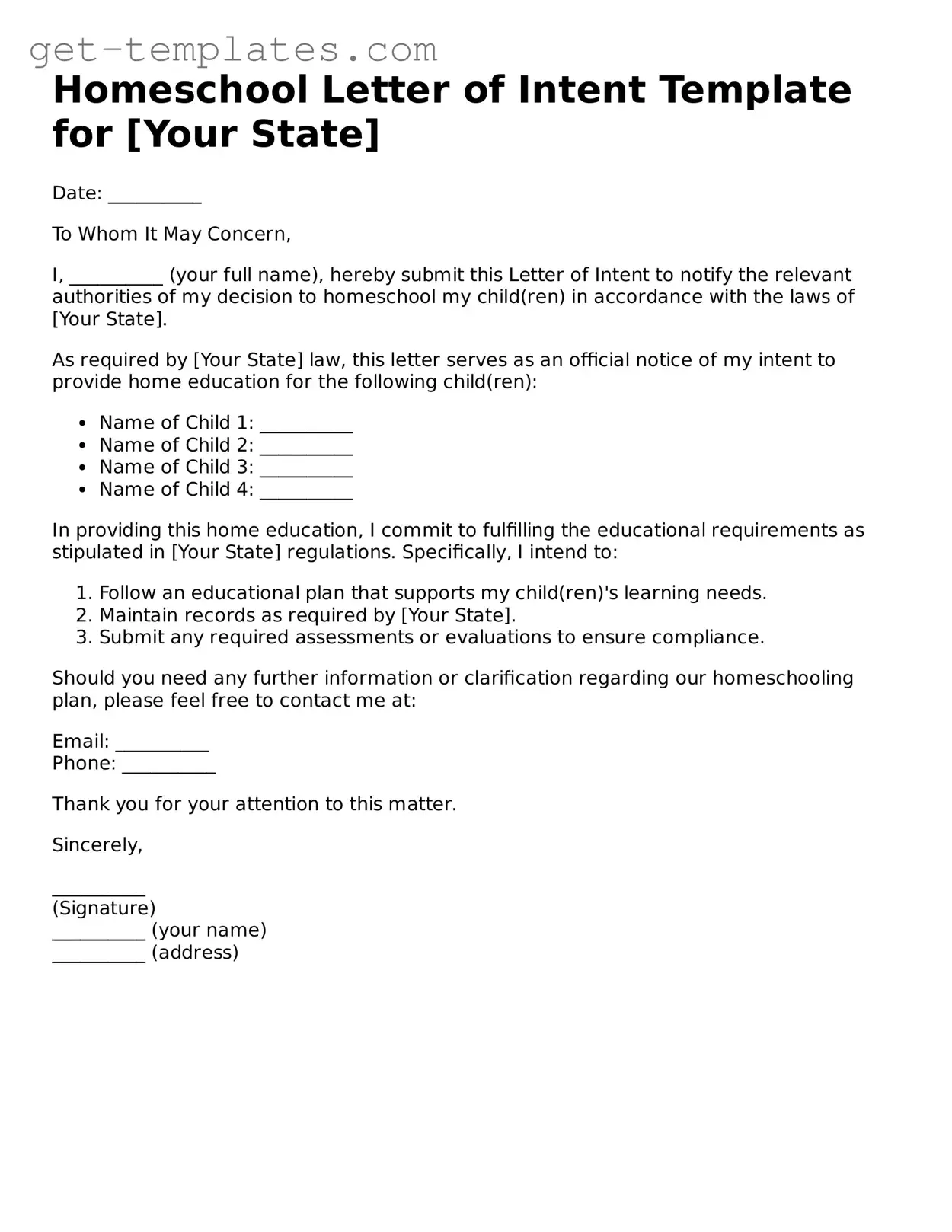Attorney-Approved Homeschool Letter of Intent Form
The Homeschool Letter of Intent is a formal document that parents submit to their local school district to declare their intention to educate their children at home. This form serves as a notification to the educational authorities, ensuring compliance with state regulations regarding homeschooling. Understanding its requirements and implications is essential for families embarking on this educational journey.
Get Document Online

Attorney-Approved Homeschool Letter of Intent Form
Get Document Online
You’re halfway through — finish the form
Finish Homeschool Letter of Intent online — edit, save, download made easy.
Get Document Online
or
⇓ PDF Form
